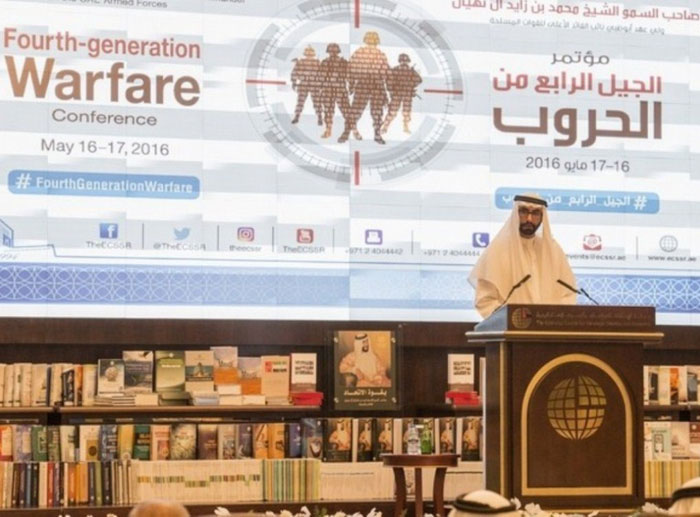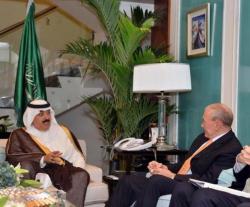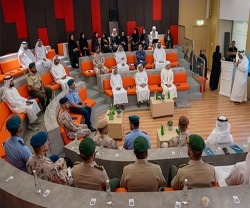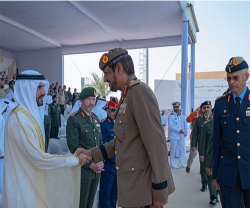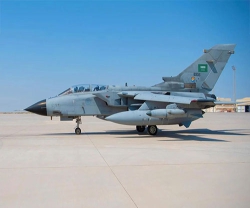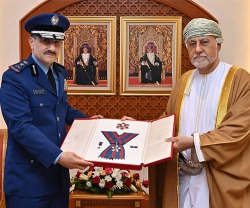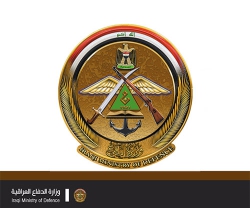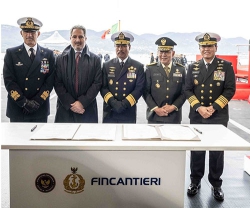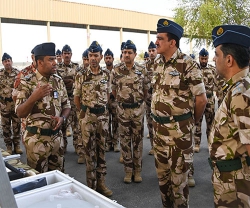Under the patronage of H.H. Sheikh Mohamed bin Zayed Al Nahyan, Crown Prince of Abu Dhabi and Deputy Supreme Commander of the UAE Armed Forces, the Emirates Center for Strategic Studies and Research (ECSSR) has organized a conference entitled Fourth-generation Warfare.
The conference, which includes the participation of a select group of experts and specialists in the fields of security and strategic and military issues, took place on 16-17 May at Sheikh Zayed bin Sultan Al Nayhan Hall at the ECSSR, Abu Dhabi.
In a bid to address the various dimensions of fourth-generation warfare, the conference featured the following four sessions:
- Fourth-generation Warfare: Exploring the Changing Face of War
- Strategic Considerations of Fourth-generation Warfare
- Possible Threats of Fourth-generation Warfare
- Paths and Future of Fourth-generation Warfare
Mohammed Al Bowardi (photo), UAE Minister of State for Defense Affairs, called for readiness to fight this new type of unconventional war and new tactics to ensure the UAE’s protection.
“There are a number of countries that are witnessing conflicts that led to their demise, the disintegration of their structure and the spread of terrorist attacks around the world,” he said.
“Terrorists involved in such wars use unconventional ways to target a country, by attacking its vulnerabilities and cultural and moral values through different ideologies, making it difficult to build a strong defense system”, Al Bowardi said.
He said these wars did not acknowledge countries’ integrity and borders nor their humanitarian or armed conflict laws.
“It is not a war between organized armies that countries participate in and are subject to international laws. It is a war [in which] we are witnessing a party that has a different ideology and it is different to anything we have seen before. It is a war we need to be ready to [win], especially as the party wants to destroy law and the social fabric,” said Al Bowardi.
Extremist groups such as ISIL had ravaged countries in the region in recent years, including Syria and Iraq. Other countries that have been targets were Bahrain, Libya, Tunisia, Egypt, Lebanon and Yemen, he said.
The conference heard that extremist group tactics are purely strategic, using all available networks, from political and economic to social and military, with the ultimate aim of destroying a country’s political will.
“It is a war by proxy that tries to topple the opponent without a direct military intervention," said Saif Al Aryani, Secretary General of the Supreme Council for National Security in the UAE. “The [digital] environment provides the ability to manage these wars from a distance through social media, which allows the spread of rumors and communication across borders. It is difficult for many governments to follow such electronic warfare."
Major General Ahmed Al Ali, Commander at the Joint Command and Staff College in the UAE, said: “They [extremists] aim to instigate ideological conflicts through the use of poverty, unemployment, religious extremism, terrorism and armed militias."
Discerning new security threats, developing new tactics to fight them and protecting countries should be the UAE’s focus, Al Bowardi said.
“We should confront them, not by using conventional means only, but by developing our dogma and strategies to face this danger.

